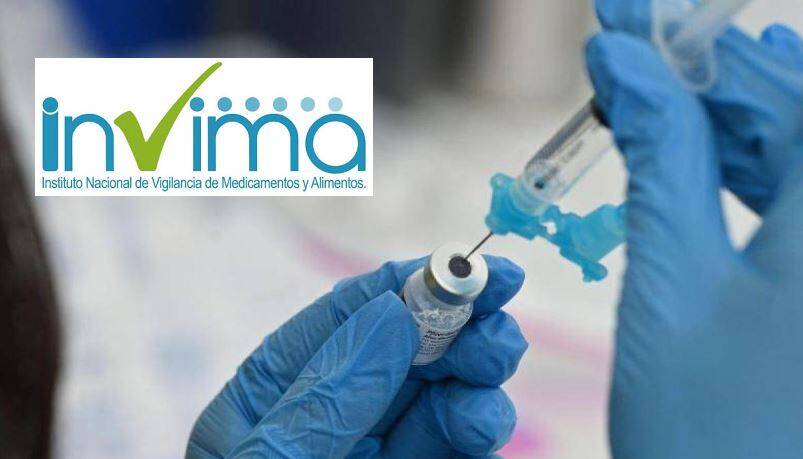Latin America could quadruple its participation in clinical trials; in Colombia, improving regulation is key.

Clinical research aims to evaluate the safety and efficacy of new drugs, medical devices, and therapeutic procedures through human studies. Clinical trials, in particular, are fundamental to the development of new treatments, as they allow innovations to be tested and validated before their approval and widespread use, ensuring that they are safe and effective for the general population. This process is essential for the advancement of medicine and improving patients' quality of life.
Despite the importance of clinical research, given the significance of new treatment alternatives for patients and for the economic and social development of countries, its development in Latin America remains limited compared to other regions such as Europe or the United States. While countries such as Brazil, Mexico, Argentina, and Chile are leaders in this field in the region, their level of progress is modest compared to the potential that exists.

Colombia has the qualities that allow it to excel in scientific research. Photo: iStock
According to ECLAC estimates, Latin America could quadruple the number of clinical studies currently being conducted, but achieving this requires overcoming structural, regulatory, and coordination barriers among ecosystem stakeholders.
In Colombia, in the 1990s, the country met the standards necessary to participate in sponsored clinical trials, attracting the interest of research-based pharmaceutical companies.
Since then, Invima has assumed oversight of these human studies; however, the number of requests for evaluation of clinical research protocols in the country has stagnated over the last decade: in 2014, 85 requests were registered, while in 2024 the number will barely increase to 87. The annual average is approximately 90.7, which demonstrates the lack of sustained growth in this indicator, according to Invima data.
On the other hand, the average time it takes for Invima to evaluate and issue a final opinion (either approval or rejection) has been 5.1 months between 2014 and 2024. This is partly related to the fact that current regulations regarding health research have not been updated in more than 15 years in the country.
This means that many of the current provisions fail to respond to the scientific, technological, and ethical advances currently governing clinical research internationally. This creates regulatory uncertainty, hampers the implementation of innovative studies, and delays approval times. Furthermore, it prevents the country from adopting global quality standards, which reduces its competitiveness compared to other nations in the region with more modern regulatory frameworks.
In this regard, Ignacio Gaitán Villegas, president of Afidro, stated that he is convinced that it is possible to change the current situation and improve the country's participation levels, something that positively impacts patients, society, and the economy.
“It is key to recognize that clinical research not only saves lives, but also boosts economies, generates skilled employment, and positions countries as leaders in science and innovation. Together, we can overcome the barriers that hinder our countries' strengthening in this area, such as fragmented or unclear regulatory frameworks, slow approval processes, and a lack of recognition of the true value and positive impact that clinical research has on the development of more and better treatments and medicines,” Gaitán noted.

Ignacio Gaitán Villegas, president of Afidro. Photo: Afidro
By December 2024, Invima had granted Good Clinical Practices certification to 162 research centers. However, despite this, the country's participation in international clinical trials remains limited. According to data from clinicaltrials.gov, 39,720 new clinical trials were reported worldwide in 2023, of which only approximately 100 were registered in Colombia. This gap highlights the various challenges Colombia faces in advancing this area.
According to a recent study by Udela, a firm specializing in analysis and consulting on medical supplies regulation, while clinical research in the country has changed over the last 10 years, COVID-19 exposed the shortcomings of this ecosystem, revealing an unfavorable outlook characterized by a lack of coordination between institutions and regulatory delays. These shortcomings have contributed to the country's stagnation in this field, limiting its regional reach and competitiveness.
For example, one of the issues on which specialists most agree is the functioning of ethics committees in Colombia, as there is significant variability in their processes, reflected in documentary requirements, fees, and evaluation times. Furthermore, some face technical limitations, such as the lack of experts in specific areas, as well as financial constraints that compromise their operation.
This lack of standardization not only represents a burden for the pharmaceutical industry—which must adapt its documentation to the requirements of each committee—but also has a significant impact on protocol approval times.

Changes to Invima are essential to advance clinical research in the country. Photo: Archive / EL TIEMPO
To overcome this and other barriers that hinder the strengthening of clinical studies in the country, Gaitán points out that it is important to:
- Implement centralized structures that allow these processes to be standardized and optimized.
- Improve communication with Invima so that the status of processes and evaluations are communicated in a timely and clear manner.
- Achieve coordination among all stakeholders in the clinical research chain, understanding that this process does not depend solely on the regulatory body but also requires the interaction of institutions such as research centers, the pharmaceutical industry, academia, the Ministry of Health, among others.
- Align regulations with international standards, using public indicators to help identify and resolve process obstacles.
- Position clinical research as a strategic sector, recognizing its impact on health, employment, and development.
- Promote public policies that recognize clinical research as an engine of development.
“Promoting clinical research in Colombia requires the commitment and effective coordination of all stakeholders in the ecosystem. Only in this way can we position the country as a competitive, ethical, and sustainable environment for the development of clinical studies, thereby impacting investment attraction, employability and competitiveness rates, but, most importantly, public health and scientific development that translates into innovative treatments for patients,” Gaitán concluded.
Environment and Health Journalist
eltiempo





